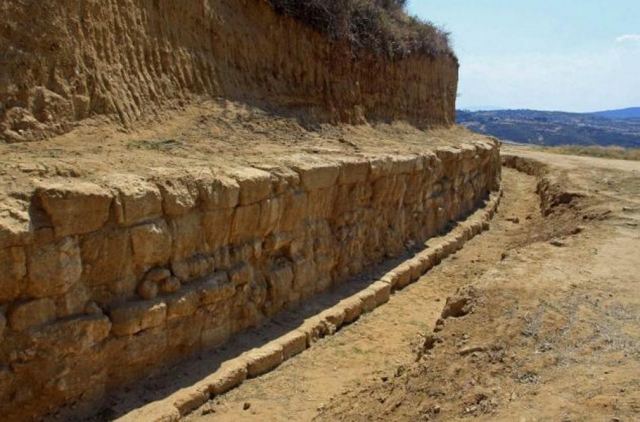
Archaeologists have made an important discovery by unearthing a burial site at the ancient city of Amphipolis, in north-eastern Greece, after two years of excavations.
Their discovery has been praised by Greek PM Antonis Samaras as an “extremely important find”.
Experts believe the Amphipolis tomb belonged to an important figure dating back to the last quarter of the 4th Century BC.
A large mound complex has been unearthed at the Kasta hill site in the past two years.
Lead archaeologist Katerina Peristeri said it certainly dated from after the death of Alexander the Great.

“The land of Macedonia continues to move and surprise us, revealing from deep within its unique treasures,” Antonis Samaras said while visiting the mound complex on Tuesday.
Other ancient sites have been found in the Macedonia region of northern Greece, principally the Vergina tomb of Alexander’s father, Philip II, which was unearthed in 1977.
There has been widespread speculation that a prominent figure in ancient Macedonia may have been buried at Kasta hill, 370 miles north of Athens.
The burial mound is 1,600ft long and constructed with marble imported from the nearby island of Thassos and there are suggestions it was built by the renowned architect, Dinocrates, who was a friend of Alexander’s.
Katerina Peristeri has in the past spoken of key historic events in the area involving some of Alexander’s generals.
Alexander’s widow Roxana and their son Alexander were murdered in 311BC by Cassander, who came to the fore after Alexander the Great’s death in Babylon in 323BC.
A lion statue found at the site has been erected close to where it was discovered at Amphipolis, which was originally an Athenian colony but later conquered by Philip II.
[youtube ObSmr1KI8n0 650]